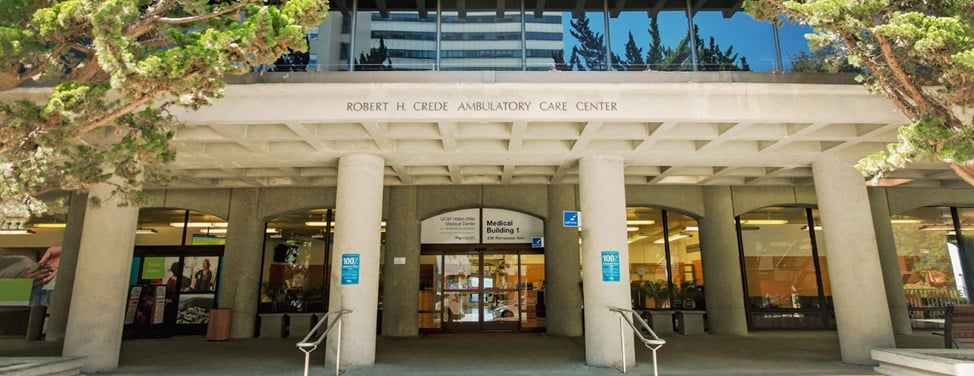
Autologous Transplant Guide: Treatment and Side Effects
High dose chemotherapy
Chemotherapy will probably begin the day you are admitted to the hospital. Your doctor will discuss all of the drugs you will receive and their side effects. Your nurse practitioner, inpatient nurse and pharmacist also will be available to answer questions. In addition, you may receive written information on these drugs in the consent form.
Some precautions are taken to minimize side effects from these drugs. For example, when receiving some types of chemotherapy, patients must shower thoroughly twice daily to remove the drug that is excreted through the skin to help prevent severe skin rashes. The inpatient nurse will review any special precautions that you may need to take.
Nausea is one of the most common side effects of chemotherapeutic drugs. Antinausea medications will be given immediately before your chemotherapy starts and will continue around the clock until 24 to 48 hours after the last chemotherapy dose is completed. The health care team will constantly evaluate your response to your antinausea drugs in an effort to keep your discomfort from nausea to a minimum. The antinausea medication can make you feel tired, so you may sleep more than usual during the chemotherapy. If you think you need more antinausea medications, tell your nurse, pharmacist or doctor.
Usually, chemotherapy is given over the first two to eight days of the hospitalization.
Total body irradiation
Some patients receive total body irradiation (TBI) in addition to chemotherapy. Your clinic doctor will tell you if you are getting TBI when you discuss your treatment plan. This radiation therapy is intended to destroy remaining cancer cells and further suppress the immune system. The radiotherapy doctor will discuss the details of this treatment and its side effects with you.
TBI treatments are given in the radiotherapy department, usually over a period of three to four days. The treatment itself is painless, but there may be uncomfortable side effects after treatment, such as mouth and throat sores, nausea, stomach and intestinal irritations, and skin redness. Antinausea medication is usually given before each treatment to reduce nausea. Additional medications will be given as needed.
The transplant procedure
The transplant will occur one to three days after your last chemotherapy dose or anytime after your last radiation dose. The day of transplantation is referred to as Day 0. You may have a family member in the room with you during the infusion if you wish.
The transplant procedure is similar to a simple blood transfusion and will take place in your hospital room. The actual procedure takes approximately 45 minutes, depending on the volume of stem cells. If you are receiving bone marrow, the infusion may take several hours. The blood stem cells will be infused through your central venous catheter. Your nurse will check your blood pressure, temperature, breathing and pulse, and will watch for any side effects.
Usually there are no side effects, but occasional patients may experience a funny taste in the mouth, chills, flushing of the face, nausea and vomiting, headache, and changes in blood pressure and breathing. Your urine also may be tinged red for the first 24 hours after transplantation. If your urine remains red after this time or becomes red later, tell your nurse.
Delayed side effects
The body feels the effects of the chemotherapy or radiation about a week after transplantation. When your blood counts are low, you will feel fatigued. You may feel like you have the flu and may not want to do much. This will last for about two weeks and will decrease as your blood counts improve. You may notice a number of other symptoms as well.
Loss of appetite
Appetite loss occurs frequently. Avoiding foods that cause discomfort or sometimes not discussing eating and food can help. Try to eat small amounts but more frequently – become a nibbler. Eat what you have cravings for and don't eat what is not appealing. Your appetite will begin to improve when your blood counts get better.
You will need to eat at least 1000 calories and drink one quart of fluid to be discharged. Your stomach may not have recovered sufficiently to do this until your neutrophil count is rising.
Chemotherapy, TBI and some medications may cause temporary changes in your sense of taste and sometimes your sense of smell. Many patients state that suddenly food tastes like paper or cardboard. As the taste buds begin to recover, you may find foods taste too sweet, too sour, too salty or too bitter depending on which area of the tongue is recovering first. Most patients find their sense of taste begins to recover by the second or third week after TBI or chemotherapy, but full recovery may take months.
Nausea and vomiting
Chemotherapy, TBI and sometimes antibiotics may cause varying degrees of nausea and/or vomiting. Your doctor will order medication to control the nausea and vomiting. The medication will be given as you call for it. Ask your nurse if you need antinausea medicine.
Some foods, especially the odor of hot foods, may increase the nausea or vomiting. If this occurs, it is best to try to avoid these for several days and select only those foods which make you more comfortable, such as cold foods and beverages. Avoid greasy foods and eat small, frequent meals instead of large amounts.
We do not recommend forcing yourself to eat when you are having nausea and vomiting, because often this can worsen the nausea and vomiting and cause problems later, such as prolonged dislike of those foods because you associate them with feeling ill (food aversions).
Rest after meals and keep your head slightly elevated. If nausea is severe, just drink small amounts of clear liquids every few minutes rather than a whole glass at one time.
Changes in vision
Some of the medications may make you drowsy or make it difficult to focus your vision for several hours after administration. If visual changes persist let the nurse know, so that other potential reasons can be evaluated.
Mouth and throat soreness
After chemotherapy, your mouth may become red and tender, and your gums may bleed. This is known as stomatitis or mucositis.
It is important to keep your mouth clean by brushing your teeth four times a day with your soft toothette and rinsing your mouth with a salt and soda solution, Ampho B mouthwash and peridex every two hours while awake. You will also be given an antifungal mouthwash called Amphotericin several times a day. Do not use commercial mouthwashes, as the alcohol in them may be painful to your sore mouth. If your mouth is too sore to brush your teeth, then just use the salt/soda rinses.
Be sure to tell the nurse if your mouth is sore or your gums are bleeding. It may be necessary to try other rinses or pain medications to make you more comfortable.
Diarrhea
Chemotherapy, TBI and some antibiotics may cause diarrhea. This can lead to skin breakdown and infection around the rectum. A stool sample may be collected to rule out infection as a cause of diarrhea.
Medications are available to decrease diarrhea, and creams or sitz baths may soothe the irritation around the bottom. Please let the nurse know if you are having any discomfort around your bottom.
Sleeping problems
It is not unusual for patients to have trouble sleeping in the hospital. Hospital personnel involved in your care may interrupt your rest at intervals. If you have trouble finding enough time to sleep, ask your nurse to help arrange your schedule so that you will have some uninterrupted rest periods at night. A sleeping medication can be ordered as well. Try not to sleep during the day.
Infection
Infection is one of the most common complications when the neutrophil count is low during hospitalization. However, after the white blood cell count comes up to normal, resistance to infections is still decreased, partly due to the medications you will be receiving and partly due to the time it takes for your new immune system to grow. This may take as long as two years. We will be monitoring the re-growth of your immune system and will notify you as your risk of infection decreases.
Strategies aimed at controlling exposure to infectious organisms include:
- Private rooms
- Limiting the age and number of visitors
- Special diets
- The use of a mask when the patient leaves the room
- Personal hygiene, including daily bathing with antimicrobial soap and oral care with chemobrush, salt and soda rinse, peridex and amphotericin mouthwash
In addition, antibiotics will be administered to prevent infections. You will continue to take them upon discharge from the hospital to help prevent infection.
Infections can occur anywhere in your body. It is very important to report any signs or symptoms of an infection to your nurse or doctor. Signs and symptoms include:
- Chills and/or fever
- Shortness of breath, coughing and the production of sputum (a mucus-like secretion)
- Loose, watery stools or stomach pain
- Blisters, rashes, mouth sores, sores or redness at a catheter site, and irritation or sores around the vaginal or rectal area
- Headache or inability to bend your neck forward
- Sore throat, difficulty or pain in swallowing, toothaches and earaches
- Pain during bowel movements or urination
- An infected hangnail or skin around the toenails or fingernails, including any redness or swelling
When infection is suspected, your doctor will order specimens to be collected and cultured. These may include samples of urine, blood, sputum and stool, swabs from your throat, rectum, catheter site and any suspicious skin break. You also will have a chest X-ray taken. Additional antibiotic medication may be given to fight the suspected infection.
Hair loss
Hair loss generally occurs one to two weeks after chemotherapy or TBI. This is temporary and the hair is expected to grow back. We recommend shaving or cutting your hair very short to prevent itching when there is hair loss.
Wigs are not recommended during your hospital stay, because they cannot be cleaned properly, but you may want to purchase a wig or hairpiece after you are discharged. These are tax-deductible medical expenses. Some medical insurance covers these costs.
Continue reading
Return to the Autologous Transplant Guide Index:
UCSF Health medical specialists have reviewed this information. It is for educational purposes only and is not intended to replace the advice of your doctor or other health care provider. We encourage you to discuss any questions or concerns you may have with your provider.






